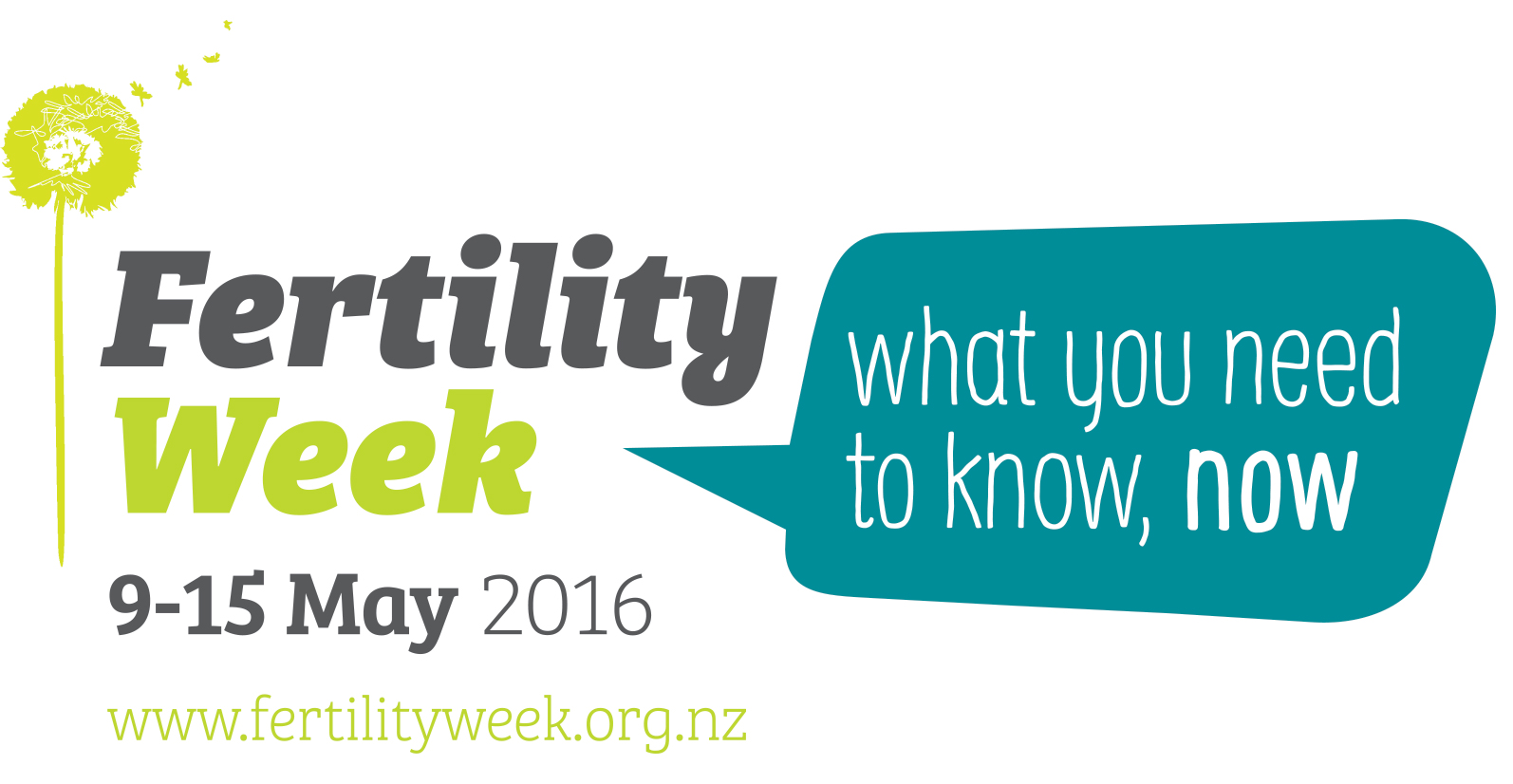
May 9th to 15th 2016
Join us for fertility discussions, advice & support
Webinar - Understanding Fertility

Who is affected?
Infertility will affect 26% of New Zealanders at some stage of their life.
Infertility is not just a female problem – in about 40% of infertile couples the problem is a female factor, in about 40% it is a male one and for the remaining 20% there is a joint problem, or the cause is unknown.
What is infertility?
A couple is regarded as having a fertility problem when they have not conceived after 12 months of regular unprotected sexual intercourse or when they have a medical condition which can affect fertility, such as irregular periods. Infertility is a medical condition recognised by the World Health Organisation.
There are many contributors of infertility; common problems include poor sperm quality, damaged fallopian tubes, endometriosis and hormonal imbalances – to name a few.
Treatments for infertility
Treatments for fertility problems are many and varied. Some common treatments include medications to improve the production of eggs, surgery on the fallopian tubes to fix damage, insemination of the woman with either the partner’s sperm or with donor sperm, in vitro fertilisation (IVF) or IVF with intra cytoplasmic sperm injection (ICSI).
Though success rates vary, treatment does not carry any guarantee of success. A couple where the woman is aged 30, has around a 50% chance of a pregnancy from one cycle of IVF. If the woman is aged 40, this drops to about 25% chance. Many treatments also carry some health risks.
There is no treatment for egg quality (due to age) – egg donation is sometimes the only option for women with poor ovarian reserve.
Some people try natural treatments such as acupuncture and naturopathic treatments.
Some couples choose not to seek treatment; infertility treatment can be emotionally draining, and although some publicly funded treatment is available in New Zealand, specific eligibility criteria must be met, and there may be a wait to access treatment.
A small number of New Zealanders will adopt children (around 60 non-relative adoptions per year), while others will remain without children.


Who is affected?
Infertility will affect 26% of New Zealanders at some stage of their life.
Infertility is not just a female problem – in about 40% of infertile couples the problem is a female factor, in about 40% it is a male one and for the remaining 20% there is a joint problem, or the cause is unknown.
